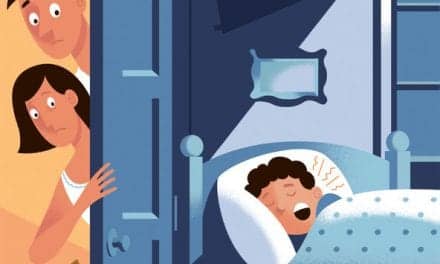NPR’s Shots blog asks, do anti-snoring devices work?
“Sleeping on your back makes your tongue block your airway a little, sort of like the skinny part of a balloon, when you let air out of it,” Hutchison says. So some devices combine straps and pillows that make sleeping on your back uncomfortable — or poke you if you roll over.
There are also chin straps aimed at repositioning your jaw in a way that opens the airway. They might work for some, says Dr. Richard Schwab, director the Pennsylvania Sleep Center. But one chinstrap on the market covers the wearer’s entire mouth. “A terrible idea!” says Schwab. “You should never cover your mouth — you could choke.”
Devices that gently poke and prod might help some snorers, says Hutchison. Eventually, some people do stop sleeping on their backs, to avoid being jabbed to consciousness. If that’s not annoying enough, there are more insistent devices: wristbands that send a little electric shock every time you snore.
Get the whole story at www.npr.org




There should be equal time given to the treatment modalities that do work in treating snoring and OSA. Oral appliances for example.
An oral appliance made by a properly trained dentist can easily stop snoring and in most cases effectively treat sleep apnea. Such a dentist working with a sleep physician who has diagnosed the patient can be an effective team for combating this life shortening disease called obstructive sleep apnea.